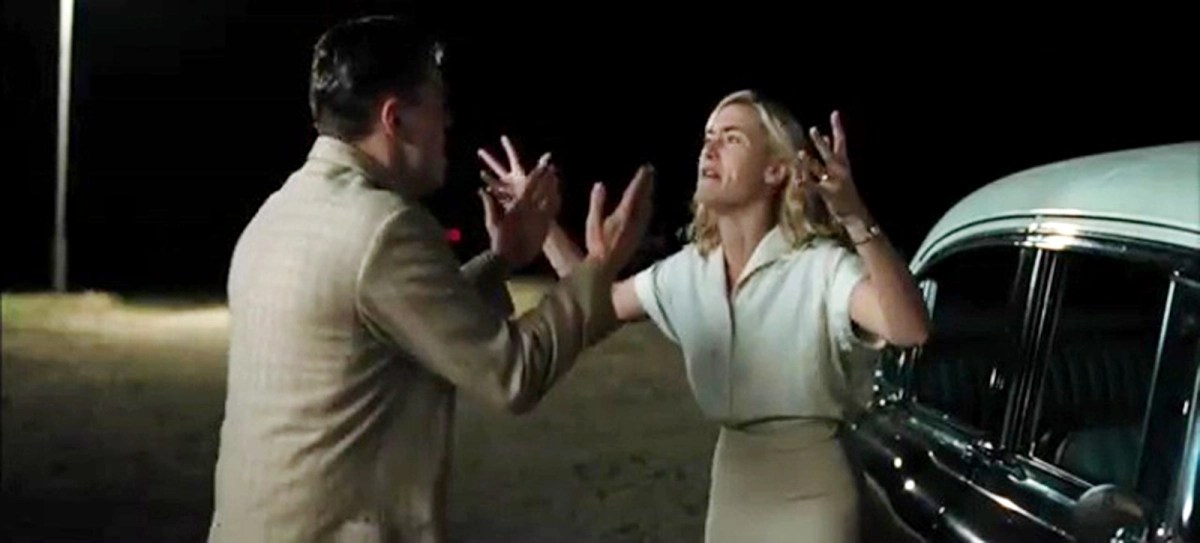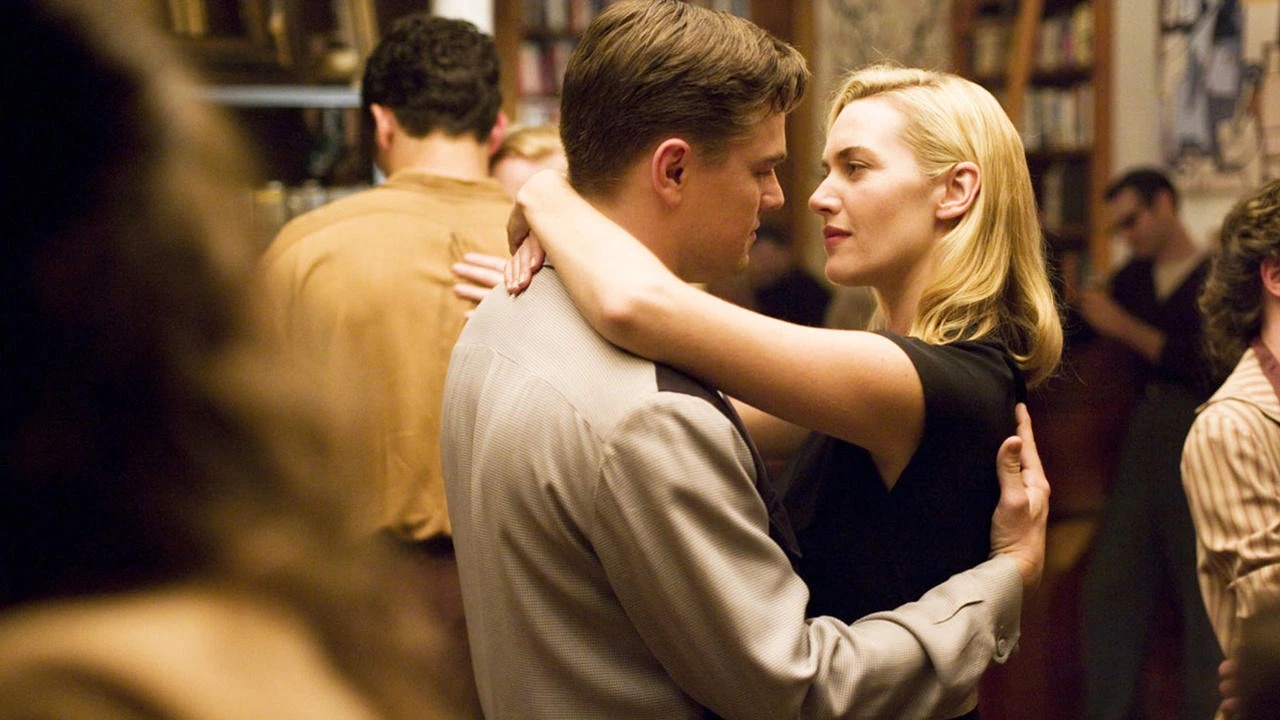Revolutionary Road (2008)

“Revolutionary Road” is a 2008 romantic drama film directed by Sam Mendes, based on Richard Yates’ 1961 novel of the same name. The film tells the compelling and tragic story of a young couple, Frank and April Wheeler, living in suburban Connecticut during the 1950s. As they struggle with their desires for a different life, the film explores themes of unfulfilled dreams, societal expectations, and the harsh realities of marriage.
The central characters, Frank and April Wheeler, are played by Leonardo DiCaprio and Kate Winslet, respectively. The couple, initially filled with hope and ambition, dreams of escaping their ordinary suburban life. April envisions a move to Paris, where she believes they can live authentically, while Frank longs to break free from his monotonous office job. However, as the story unfolds, their idealized vision of life begins to unravel, revealing deep dissatisfaction and emotional conflict.
The performances by DiCaprio and Winslet are exceptional, with both actors delivering powerful portrayals of a married couple trapped in their own personal struggles. Their chemistry and the intensity of their interactions make the characters’ descent into disillusionment both heartbreaking and captivating. The film’s portrayal of their relationship is raw, showing how love and frustration can coexist in a marriage that is suffocating both individuals.

“Revolutionary Road” critiques the conformist culture of the 1950s, highlighting the pressure to conform to societal norms, such as traditional family roles and suburban living. The couple’s dream of a more fulfilling life is continually thwarted by external expectations and their own internal fears. The film examines how the desire for something more can lead to personal and relational destruction, especially when confronted with the reality of the choices they have made.

The cinematography in “Revolutionary Road” plays a crucial role in conveying the emotional tension of the film. The cold, sterile suburban landscape is contrasted with the warmth and vibrancy of the couple’s dreams, emphasizing the disconnect between their aspirations and the reality they face. The use of muted colors and subtle details throughout the film mirrors the characters’ emotional states, making the viewer feel the weight of their inner turmoil.

In conclusion, “Revolutionary Road” is a poignant exploration of the complexities of marriage, personal dreams, and societal expectations. Through its powerful performances, meticulous direction, and hauntingly beautiful cinematography, the film presents a stark and heartbreaking portrayal of two individuals whose quest for meaning ultimately leads them down a tragic path. It serves as a timeless reflection on the dangers of living a life dictated by external pressures and the cost of sacrificing personal dreams for conformity.











